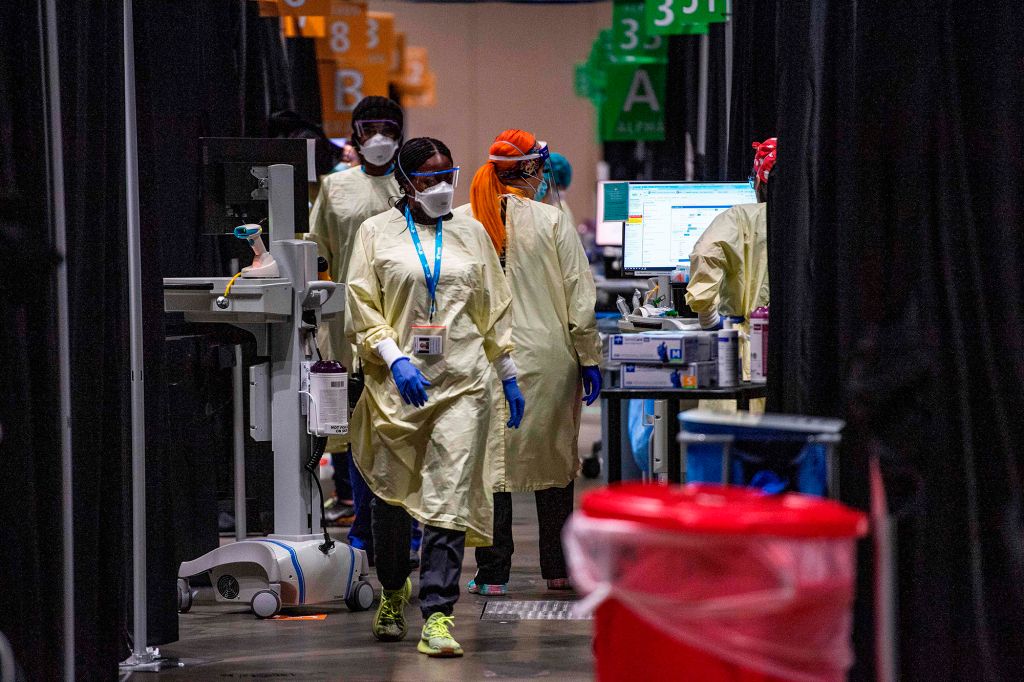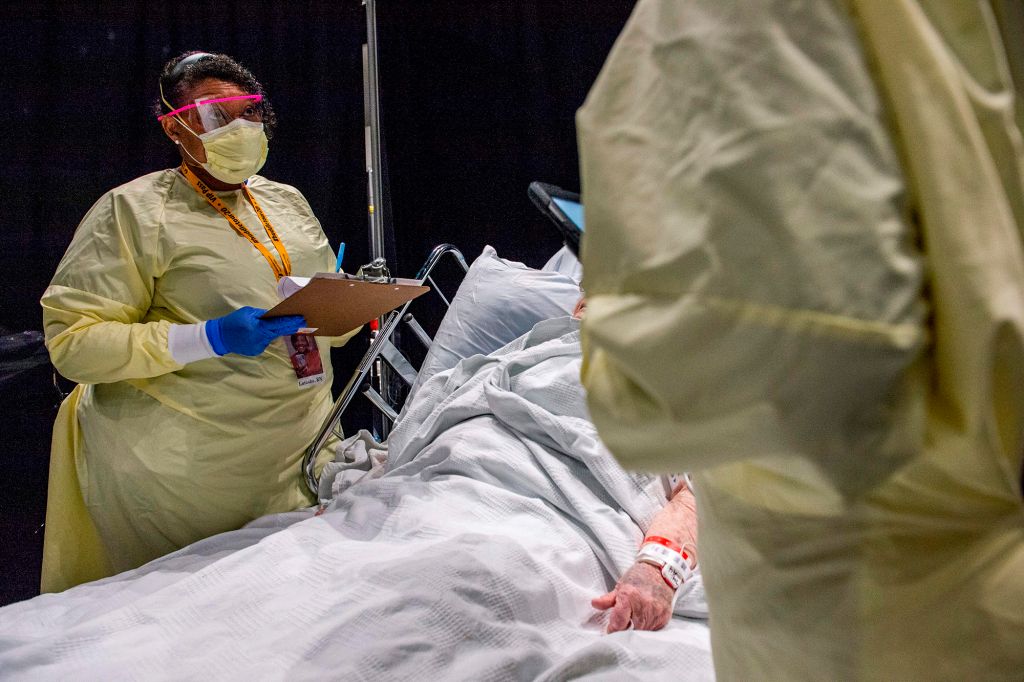Almost a third of recovered COVID-19 patients in a UK study ended up back in the hospital within five months — and up to one in eight died of complications from the illness, according to a report.
Researchers at the UK’s Leicester University and the Office for National Statistics found that out of 47,780 people discharged from the hospital, 29.4 percent were readmitted within 140 days, the Telegraph reported.

JOSEPH PREZIOSO/AFP via Getty Images
Respiratory disease was diagnosed in 14,140 of the COVID cases after discharge, with 6,085 of the diagnoses in patients who had no history of respiratory conditions.
The mean age of study participants was 65 years.
Many people who suffer long-lasting effects of the coronavirus develop heart problems, diabetes and chronic liver and kidney conditions, according to the report.
The research also found a higher risk of problems developing in various organs after people younger than 70 and ethnic minorities were discharged from the hospital, according to the Guardian.
“People seem to be going home, getting long-term effects, coming back in and dying. We see nearly 30 percent have been readmitted, and that’s a lot of people. The numbers are so large,” study author Kamlesh Khunti said.
“The message here is we really need to prepare for long COVID. It’s a mammoth task to follow up with these patients and the NHS is really pushed at the moment, but some sort of monitoring needs to be arranged,” added Khunti, a professor of primary care diabetes and vascular medicine at Leicester University.
The study — which Khunti described as the largest of people discharged from a hospital after being admitted with COVID-19 — found that survivors were nearly 3½ times more likely to be readmitted, and die, in 140 days than other outpatients.
Khunti said the researchers were surprised that many people were readmitted with a new diagnosis, adding that it was important to make sure people were placed on protective therapies, including statins and aspirin.

“We don’t know if it’s because COVID destroyed the beta cells which make insulin and you get Type 1 diabetes, or whether it causes insulin resistance, and you develop Type 2, but we are seeing these surprising new diagnoses of diabetes,” he said.
“We’ve seen studies where survivors have had MRS scans and they’ve cardiac problems and liver problems,” Khunti added. “These people urgently require follow-up and the need to be on things like aspirin and statins.”
Dr. Charlotte Summers, a lecturer in intensive care medicine at the University of Cambridge who was not involved in this study. told the Guardian: “There’s been so much talk about all these people dying from COVID … but death is not the only outcome that matters.
“The idea that we have that level of increased risk in people … particularly young people, it means we’ve got a lot of work to do,” she added.
The new study was published on a pre-print server and has not yet been peer reviewed.
Source: New York Post









Leave a comment